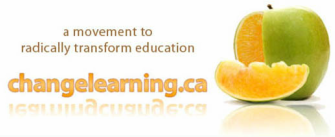(Source: Canadian Council on Learning)
Link:
https://www.childcarecanada.org/documents/research-policy-practice/17/11/let-children-play-natures-answer-early-learning

|
|
|
Play enhances every aspect of children’s development and learning, however, it is increasingly rare for children to have long, uninterrupted blocks of time to play indoors and outdoors, by themselves or with their friends. Although children learn to play naturally, we all have a role in ensuring that children have enough time and opportunity to play.
(Source: Canadian Council on Learning) Link: https://www.childcarecanada.org/documents/research-policy-practice/17/11/let-children-play-natures-answer-early-learning
2 Comments
How Did We Get Here?
Our schools are falling short—not because of poor teaching, apathetic youth or lack of rigorous standards but because the educational system of today was built for the needs of a bygone era, using the knowledge available at the time it was created. Significant changes in family, work, technology and culture have radically shifted the context for education in this country, yet the system remains essentially the same. Developments in neuroscience, brain imaging and anthropology now provide concrete answers about how the human brain actually learns and matures, but this relatively recent knowledge is not reflected within the existing educational structure or classroom practices. Decades of “educational reform” calling for higher standards and a return to the basics have served only to drag an already out of date system even further in the wrong direction. These types of simplistic and short term bandages directly contradict what we really know about the circumstances and opportunities that children need to learn, flourish and succeed. As a result, many students are frustrated and disengaged, parents are confused and disappointed, and educators are defensive and worn out. Learn more about the history of education. Read more On the face of it, Sweden’s attitude to teaching nursery children is incredibly relaxed and informal. Could the absence of testing, inspection and excessive paperwork, combined with a strong emphasis on play and relaxation, be the very secret of their success? Watch a fascinating video report on the British Teachers TV website: Early Years Education in Sweden This paper describes aspects of the current context of education policy in Canada, selected trends in the integration of information and communications technologies (ICT) for learning in the kindergarten to grade 12 education systems and offers observations about emerging visions of effective ICT integration. The ideas presented represent a synthesis of information reviewed in research reports, policy papers, selected seminars and surveys. (Source: Canadian Education Association) Link: http://www.cea-ace.ca/res.cfm?subsection=rep This Policy Proposal, from the 21st Century Learning Initiative in the UK, is written to assist those in positions of influence to initiate powerful changes to current educational arrangements. The circumstantial evidence for such a transformation of learning is drawn from the best in research and practice from around the world. The paper shows that better informed, and more effective, models of learning could be organised through a redistribution of expenditures and responsibilities, at a total cost no greater than current levels of expenditure.
The annual Survey of Canadian Attitudes toward Learning (SCAL) provides a unique opportunity to gauge the opinions, perceptions, and beliefs of Canadians about various aspects of learning in Canada. Now in its second year, the survey was designed by the Canadian Council on Learning (CCL) in consultation with Statistics Canada, which administered the survey on behalf of CCL.
Link: http://www.ccl-cca.ca/CCL/Reports/SCAL/ If young people are to be equipped effectively to meet the challenges of the 21st century it is surely prudent to seek out the very best understandings from current scientific research into the nature of how humans learn before considering further reform of the current system.
This article by John Abbott and Terence Ryan appeared in the Spring, 1999 issue of Education Canada. |
Categories
All
Archives
August 2015
|